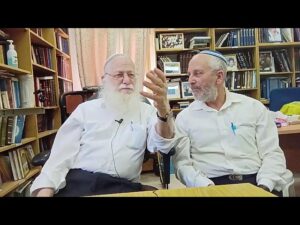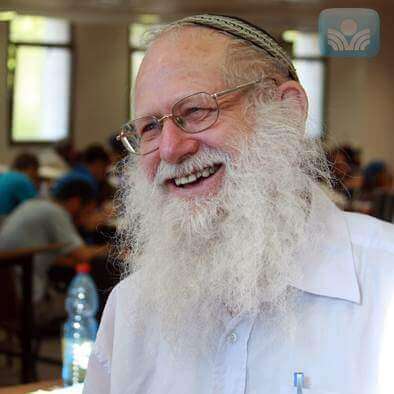Message for Today
by HaRav Dov Begon, Head of Machon Meir.

“Let the nations praise His people, for He will avenge His servants’ blood. He will bring vengeance upon His foes, and reconcile His people and land” (Deuteronomy 32:43). Rashi comments:
“‘Let the nations praise His People’: Times will come when the nations praise Israel for having clung to G-d and having not left Him despite all the suffering they underwent. Quite the contrary, they recognized G-d’s goodness and praiseworthiness even when they were in the darkness of the exile.
“‘He will reconcile His people and land’: G-d will propitiate His land and His people over the troubles that befell them and the things their enemies did to them. And what is G-d’s ‘Land’? His people, the Jewish People. When His people are comforted, His land is comforted.”
Today, we are privileged to be living in Eretz Yisrael at a time when millions of Jews are gathering there from all over the world and the State of Israel is developing in gigantic strides. All of these are a tangible expression of G-d’s being reconciled to the People and Land of Israel, which are one. As Rabbi Kook said (Orot 9), “Eretz Yisrael is an independent unit bound by living ties to the nation.”
During these times, days of repentance and reconciliation, and especially on Yom Kippur, the day of reconciliation between man and G-d and between man and man, we must recognize G-d’s goodness and kindness to us. By doing so, we will merit to renew our days as of old, and through us will be fulfilled the words of the prophet, “Then will I sprinkle clean water upon you, and you shall be clean. A new heart also will I give you, and a new spirit will I put within you” (Ezekiel 36:25).
Ask Your Father
“Ask your father and let him tell you.”
“Remember days long gone by. Ponder the years of each generation. Ask your father and let him tell you, and your grandfather, who will explain it” (Deuteronomy 32:7.
Rashi explains that “your father” connotes the prophets, while “your grandfather” connotes the sages. Indeed, every Jew is bound by the pleasant duty of recalling and reviewing history from start to finish. By doing so, we can understand the present.
“Ponder the years of each generation.” By pondering all the generations, we will understand our own generation as well.
How does one do this? How is it possible to integrate the distant past with the future? For that we have to ask the prophets and sages. The prophets, with their divine intuition see not only the beginning of days, but the end of days as well. The sages, with their wisdom, read and understand the present and future reality: “Who is wise? He who sees the future” (Tamid 32a). Yet whoever sees the present reality without linking it up with the larger scheme of things will be smitten with annoyance, skepticism or even despair.
To what can this be compared? To a wine grower who knows that during the winter, his vines are alive and are only gathering strength for the period of flowering and growth. Precisely the winter, when the vines look like dry wood, is the precondition for a good, sweet yield in the coming summer. If, however, someone does not understand grape growing, then when he sees the vines during the winter he will be alarmed and will think that the vineyard has died.
It is the same with the life of the group and of the individual. There are “winter” periods, when G-d is hiding His face, times fraught with difficulties and complications. We then have to ask the wise men — our “father” and “grandfathers” — and they will tell us that following the period of G-d’s hiding His face, will come of time in which He shines His countenance upon us. In fact, that is G-d’s infinite goal in conducting His world.
Today, we are standing between Rosh HaShana and Succot, between the days of Judgment and the days of joy that reveal themselves at Succot. Both in terms of the yearly cycle, as well as in terms of the cycle of history, these are days in which we emerge from darkness to light, from G-d’s hiding His countenance to His shining His countenance upon us. Through this we will all merit together that “a new light will shine upon Zion” (morning prayers).
With blessings for a joyous Yom Kippur and Succot and for our complete Redemption.






